Have you been ARRESTED or contacted by the Police, a Detective, FBI, or CPS?
Proposition 36 and Pre-Trial Diversion Defense Legal Services in L.A., California
Pre Trial Diversion And Proposition Prop 36 in Los Angeles
Proposition 36 (codified at California Penal Code sections 1210, 1210.1: and Penal Code section 3063.1: commonly referred to as “Prop 36,” was approved by California voters in 2000 as a measure to reduce the statewide jail and prison population by showing certain leniency to non-violent drug offenders.
More specifically, the purpose of this legislation was to rehabilitate non-violent defendants accused of drug crimes through therapy and treatment rather than time incarceration. This would be a more cost-effective option for the state and county governments, and provide obvious benefits for those facing drug charges.
(Prop 36 is also known as the “Substance Abuse and Crime Prevention Act of 2000”. See: https://www.uclaisap.org/prop36/html/about-prop-36.html.)
However, you must meet certain requirements, which will be covered in more detail below, to secure a Proposition 36 eligibility ruling from the court.
Pre-Trial Diversion for California Drug Offenses (California Penal Code section 1000:
According to California law, certain offenders can be sentenced to a drug rehabilitation center instead of a prison term. This initiative is known as a “Pre-Trial Diversion Program” since it diverts offenders away from imprisonment and into rehabilitation programs. Provisions under California P.C. § 1000 establish the legislative framework for a pre-trial diversion program. Only drug crimes involving “simple possession” qualify hereunder.
Qualifying people convicted of non-violent drug offenses have the chance to avoid serving time behind bars and receive much-needed rehabilitation programs under California P.C. § 1000. Furthermore, if you successfully meet the Pre-Trial Diversion Program provisions, the criminal charges pending against you will be dropped. No conviction would appear on your criminal record, if any.
California’s P.C. § 1000, Pre-Trial Diversion Program was formerly known as “deferred entry of judgment” or more commonly as “DEJ”. In the past, an offender had to enter a guilty plea to drug charges to participate in the diversion system. The charges to which the offender had previously pleaded guilty would then be dropped once they had finished their drug rehabilitation program. If the offender did not adhere to all the conditions of their drug rehabilitation program, they would still be found guilty.
See, e.g.: https://www.smcgov.org/probation/deferred-entry-judgment-dejdiversion
Criminal Defense
Menu
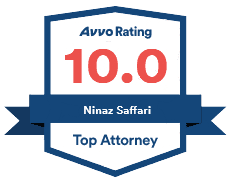
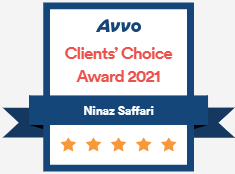
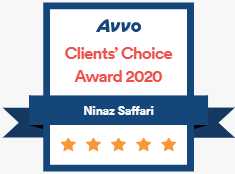


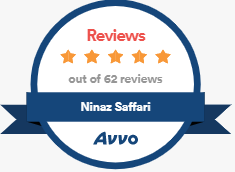
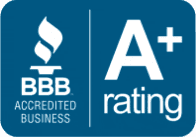



An Overview of California’s Proposition 36
Prop 36 is defined under the provisions of California P.C. §§ 1210, 1210.1, and 3063.1, respectively. This kind of drug diversion allows eligible defendants to have their cases dismissed upon successful completion of a court-approved drug rehabilitation program. The following would be part of the court-approved rehabilitation treatment:
- Drug awareness education;
- Outpatient services or residential treatment;
- Detoxification services or narcotic replacement therapy;
- Aftercare services.
However, the court program doesn’t take into account drug rehabilitation programs available in correctional institutions. Prop 36 changed the legal system of California in that regard, as well. The initial proposal stated that rather than serving a jail or prison sentence, people who are facing their 1st or 2nd non-violent drug possession charge should instead receive a year of rehabilitation. If necessary, the course can be extended by 6 months and only twice.
During the program’s initial years, participants who were eligible for Prop 36 favored outpatient services, with a small fraction choosing residential programs. Some individuals also sought therapy through detoxification treatments in clinics.
Prop 36 also benefits offenders who violate their parole terms by engaging in non-violent drug crimes. This implies that if a person on parole is charged with a non-violent drug possession charge, he or she would not be remanded back to prison but would instead be sent to a treatment center.
Non-Violent Drug Offenses Under the Prop 36 Provision and P.C. § 1000 Pre-Trial Diversion
As was previously mentioned, not all drug-related crimes are covered by Prop 36 and P.C. § 1000. However, certain offenses render a person eligible for this punishment alternative, including:
- Being caught in possession of or transferring narcotic substances for personal use;
- Being a drug user or intoxicated by narcotic drugs, as defined by the Controlled Substances Act of the United States.
See: https://www.dea.gov/drug-information/csa
These substances, among several others, include Vicodin, cocaine, phencyclidine, heroin, peyote, gamma-hydroxybutyric acid (GHB), marijuana, codeine, Ecstasy, methamphetamines, and ketamine. As previously stated, Prop 36 and the pre-trial diversion program do not apply to all drug possession crimes. Some of the offenses a person might commit to qualify for this program include:
- Drug possession laws as stipulated in California Health and Safety Code section 11350:
- Possessing drugs to sell or transport them under provisions California Health and Safety Code section 11352:
- Having marijuana in your possession with the intent of selling it, under provision California Health and Safety Code section 11359:
According to H.S.C. §§ 11378 and 11379 criminalizes the possession, as well as the possession for sale, of certain controlled substances, such as crystal methamphetamine, is a crime. All these are classified as non-violent drug offenses. However, the factor of transporting or distributing them for profit elevates the crime to a more severe offense that doesn’t fall under the purview of Proposition 36. Additionally, the following offenses are not covered by Proposition 36:
- Cultivating or farming marijuana for personal use, as per H.S.C. § 11358:
- Being caught forging or with a forged prescription to obtain drugs in violation of H.S.C. § 11368:
- Being caught with controlled substances while carrying a loaded and functional firearm, violates H.S.C. § 11370(a):
Additional Restrictions for Prop 36 Eligibility
The crime you’re being accused of could sometimes qualify for a Prop 36 adjudication. However, if you don’t qualify in person, you will not receive the Prop 36 program. Offenders are often ineligible for Proposition 36 for several reasons. Among them are:
Having a Previous Offense That Counts as a Strike
If a defendant’s criminal record reveals that he/she was previously found guilty of a “violent felony” or “serious felony” involving the use of force or violence, they would be ineligible for Prop 36. These types of offenses typically result in a Strike under the Three-Strikes statute (see below). However, if the defendant’s violent offense that earned him or her a Strike occurred more than five years ago, the law allows the accused to be potentially eligible for Proposition 36.
See Strike Offense (California Penal Code section 667(a)&(b); California Penal Code section 667.5( c ) (“Violent Felonies”); California Penal Code section 1192.7( c ) (“Serious Felonies”):
Strike Sentencing Enhancement (California Penal Code section 1170.12).
Additionally, within the past 5 years, he or she could not have committed another felony. If you’re disqualified because of this, the court cannot ignore or dismiss the prior violations. On the other hand, if your case was handled in juvenile court, even though it was a violent offense, you’re still eligible for Prop 36.
You Were Convicted of a Non-drug-Related Offense Along With a Drug-Related Offense
If you were found guilty of a drug possession offense that was not violent while also being charged with a misdemeanor offense that is unrelated to drugs or a felony offense, you won’t be eligible for a Proposition 36 sentence. When a defendant is found guilty of a misdemeanor that has nothing to do with drugs, it implies that the conviction does not involve:
- Normal drug offenses include having drugs in your possession, using them, or possessing drug paraphernalia;
- Being caught in a location where drugs are being used;
- Failing to register as a drug offender. See Narcotics Offender Registration (California Health and Safety Code section 11590:
- Any behavior that involves drug use or possession.
For instance, you won’t be qualified for Prop 36 if you’re found guilty of a DUID as per California V.C. § 23152(f). California courts have held that a DUID crime is comparable to the sale of drugs since it puts other individuals in danger.
This means that even though the crime was drug-related and non-violent, a misdemeanor charge on a different offense would exclude one from Prop 36. However, based on the nature of your case and background, a judge might dismiss the additional charges, allowing you to be eligible for Proposition 36. This is different from having a Strike on your record since the severity of the offense that warrants a strike is much more dangerous.
Possessing a Loaded Firearm While Committing the Non-Violent Crime of Drug Possession
Possessing drugs or controlled substances is a relatively benign criminal charge. But the fact that you were carrying a loaded firearm at the time adds to the severity of the conduct. This increases the gravity of the crime regardless of whether the defendant meant to cause injury with the firearm or not. Due to this, you would not be eligible for a sentence under Proposition 36.
See Possession of a Controlled Substance While Armed with a Firearm (California Health and Safety Code section 11370.1:
CALCRIM Number 2303 (“Possession of Controlled Substance While Armed With Firearm — Health & Saf. Code § 11370.1”)
You Refused to Enroll in a Drug Treatment Program When Sentenced to Probation
If a defendant was sentenced to serve probation but he or she refused to participate in the drug rehabilitation program as part of the probation terms, they demonstrate their own unwillingness to be rehabilitated or reformed. Prop 36 is intended for people who want to change or be rehabilitated from their addiction to drugs. If you refuse to enroll in a drug rehabilitation program, you will be unable to receive a Proposition 36 sentence.
See: https://www.hg.org/legal-articles/court-ordered-rehab-and-the-consequences-for-violations-50649
Having Participated in Proposition 36 Twice
If you had two prior non-violent drug charges that led Prop 36 sentences, the court believes you would not gain from additional treatment and therefore would disqualify you. In addition to being ineligible, you will also spend at least 30 days behind bars.
Eligibility for the Pre-Trial Diversion Program
A defendant is eligible for California’s P.C. § 1000 Pre-Trial Diversion program if the allegations against him or her are solely for “simple possession” of illicit substances or drugs.
See Drug Diversion (California Penal Code section 1000).
In other words, he or she is only charged with drug possession for personal use. Therefore, if you’re facing allegations related to distributing or selling drugs, you will be ineligible for the Pre-Trial Diversion Program under the provisions of California law. Additionally, if you’re facing charges associated with holding or carrying drugs to sell them, then you’re also ineligible for the Pre-Trial Diversion Program.
If you have a prior drug conviction, you could have been barred from participating in the drug Diversion program as per the old guidelines. However, the new laws only forbid a defendant from participating in the Pre-Trial Diversion Program if he or she has previously been found guilty of a significant drug offense. Even so, the major drug charge must have taken place within the last 5 years. Therefore, if you were convicted of a serious drug offense more than 5 years ago, you could still be eligible for the Pre-Trial Diversion Program.
Furthermore, under the previous regulations, an offender could not participate in the diversion system more than once in five years. However, as of today, prior participation in a drug diversion initiative does not disqualify you from the California Pretrial Diversion Program.
Requirements to Qualify for the Pre-trial Diversion Program
To be eligible for a Pre-Trial Diversion Program, the defendant must meet all the following requirements:
- You must have been charged with an admissible offense specified in the provisions of P.C. § 1000, as noted below;
- You could not have been convicted of a drug offense or a non-P.C. § 1000-qualifying drug violation within the past 5 years;
- You couldn’t have been convicted of a crime that involved violence or threats of violence;
- The evidence provided did not indicate that a more serious drug crime had occurred; and
- The defendant should not have been convicted of a felony within the last 5 years.
We’ll go through each of these requirements in greater detail. This should give you a better idea of whether you are eligible for the Pre-Trial Diversion Program.
Probation Inquiry
The courts could order a probation review into your case before deciding whether you are eligible for the Pre-Trial Diversion Program. A probation officer will investigate your age, career history, military background, education history, as well as your family network, during this investigation. Furthermore, the probation officer will review your previous drug treatment records and assess whether it was successful. Finally, the officer will assess your intention to resolve any unresolved drug concerns and successfully finish the drug treatment program.
The conversations you have with the probation officer during the inquiry can’t be used as evidence against you regarding the drug crimes. A defendant’s interactions with the officer will only be used to determine whether he or she can benefit from a drug rehabilitation program.
After the assessment, the probation officer will submit a recommendation to the court on the type of rehabilitation plan they feel would benefit the accused. Of course, the defendant must be willing and able to participate in the diversion program. However, the court ultimately decides the type of therapy program the offender must adhere to for the Pre-Trial Diversion Program. Finally, the defendant can choose to participate in the diversion program.
Keep in mind that you must enter a “not guilty” plea to all applicable counts to take part in California’s Pre-Trial Diversion Program. Furthermore, you will be required to relinquish your right to a speedy trial as well as your right to a trial by jury. Once this process is completed, the court will waive any bail terms. As you follow through on your rehabilitation program, the probation officer will submit periodic updates to the court.
If you choose not to participate in the Pre-Trial Diversion plan, or if the court determines that it is inappropriate for you to do so given the circumstances, your case will proceed towards trial. You will therefore be entitled to a speedy and jury trial and thereby subjected to the standard criminal prosecution procedure.
"Ninaz is highly professional, organized, and talented."
RobertClient
"I always refer to Ninaz Saffari as a fighter in the courtroom. I walked out of court a free-man due to this attorney's hard work and know-how."
Kevin F.Client
"She not only makes you feel comfortable but she is very competent and experienced in pretty much any kind of situation and scenario. I feel very lucky to know her."
AddyClient